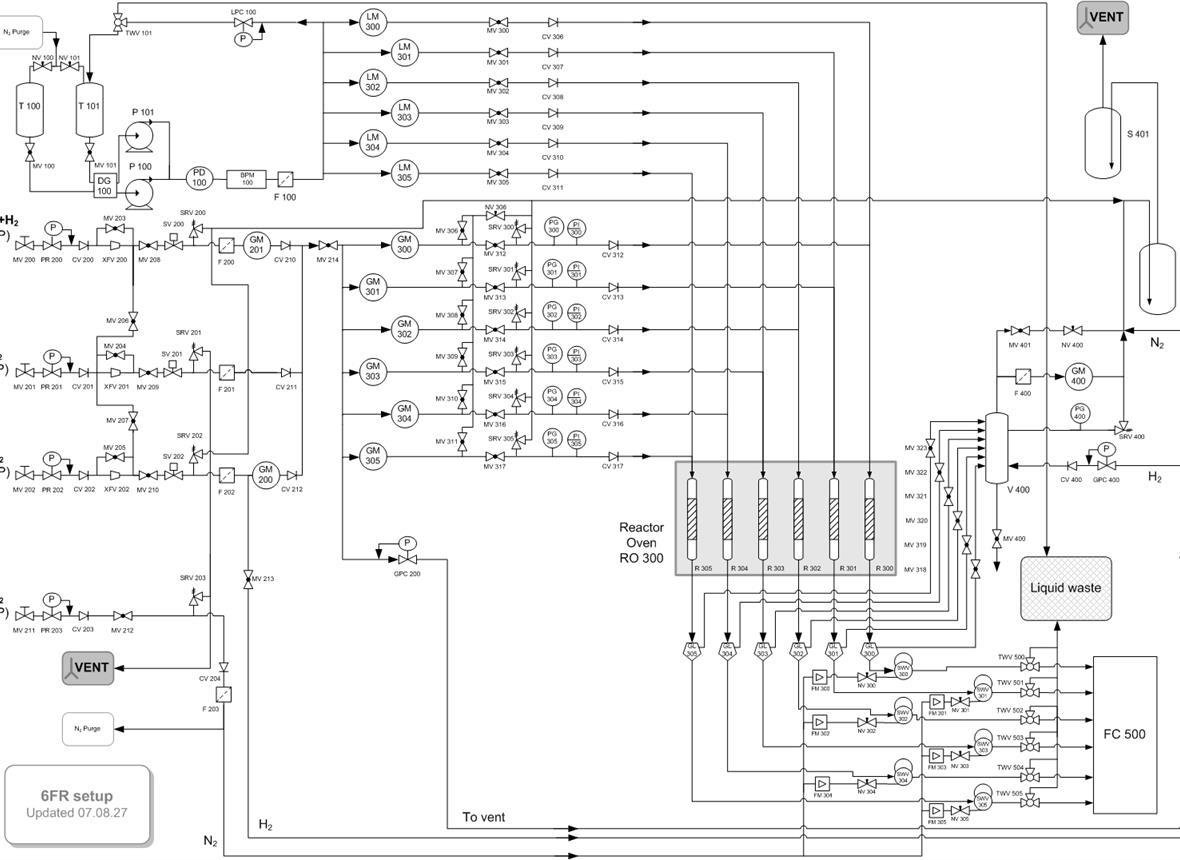This work investigates the individual and combined promoting effects of
ceria and cobalt on a nickel-based catalyst for
steam reforming. First, the catalysts were synthesized using a fixed 20 wt% Ni content and variable Ce and Co, 0-10 wt% contents. We used a combined experimental (characterization and testing) and computational framework to assess the promoting role in
catalytic activity and stability for nickel-alumina-based catalysts. The formation of Ni-Co alloy was approved by combining different characterization techniques. The Ni20Ce2Co10/Al catalyst exhibits superior conversion, H2 yield, and lifetime. The obtained catalytic activity is attributed to the presence of bare Co sites that reduces the Ni crystal size, enhances the accessibility of active sites, promotes the metal–support interaction, and facilitates C-C scission. In addition, the incorporation of Ce with low loading (2 wt %) to Ni-Co interface enhances the accessibility of
oxygen vacancy, facilitates the reaction, prevents coke formation and maintains catalytic activity for prolonged lifetime. The simplicity and cost-effectiveness of this proposed catalyst make it an appealing option for scaling up.
